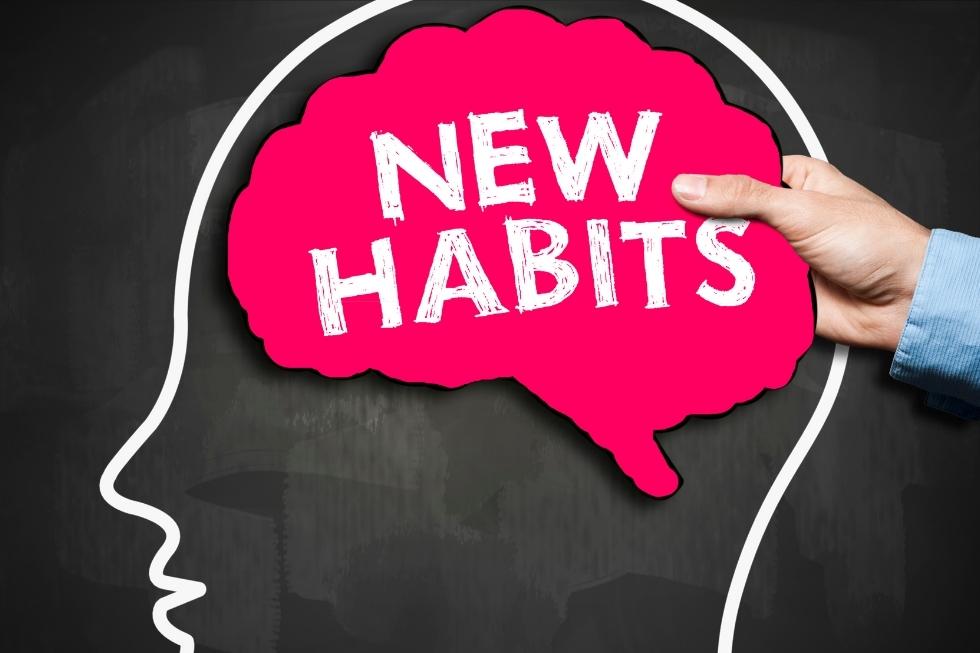
In the 1950s, when plastic surgeon Maxwell Maltz began seeing a strange pattern in his patients, he began to study what would soon become known as “reactive attachment disorder.”
21 days is how long it took Dr. Maltz to get his patients used to seeing their new faces after performing surgery, such as a nose job.
- Maxwell Maltz also discovered that people who had an arm or a leg amputated would experience a phantom limb for roughly 21 days before acclimating to the change.
- When he observed his discomfort in these situations, he decided to consider his change and new behaviors, and he discovered that it took him around 21 days to form a new habit.
- Maltz chronicled these events and noted, “These, as well as many other commonly seen occurrences, suggest that it takes at least 21 days for an old mental image to dissolve and a new one to jell.”
- In 1960, Maltz released a book titled Psycho-Cybernetics (audio), in which he included that remark and additional ideas on behavior change. The book became a big commercial success, selling over 30 million copies.
Table of Contents
And that’s when the habit problem started
In fact, since then, Maltz’s ideas have had a profound impact on many prominent “self-help” gurus, such as Zig Ziglar, Brian Tracy, and Tony Robbins. And as people recited his tale — like a never-ending game of “Telephone” — it became increasingly common to shorten it to “It takes 21 days to form a new habit.”
That is how society began to spread the widespread belief that it takes 21 days to establish a new habit (or 30 days, or some other mystical number).
- It’s incredible how often these timelines are accepted as genuine statistics.
- The harmful lesson is that if enough people repeat something frequently, others begin to believe it.
The “21 Days” myth is a perfect example of how beliefs can spread like wildfire. It’s simple to comprehend. The timeframe is short enough to be inspiring but long enough to seem realistic. And who wouldn’t want to make their life better in only three weeks?
The problem, however, is that Maxwell Maltz was recording what he observed and was not stating a fact. Furthermore, he clarified that this was the bare minimum amount of time necessary to accept a new change.
So, what’s the honest answer? How long does it take to establish a new habit? How long does it take to break a detrimental one? Is there any science behind this? And, for you and me, what does all of this signify?
How Long it Takes to Build a New Habit
Dr. Phillipa Lally is a psychologist at University College London who has studied health psychology for many years.
In a study published in the European Journal of Social Psychology, Lally and her team set out to discover how long it takes to develop a habit.
Over 12 weeks, researchers observed 96 individuals’ behaviors.
Each person picked one new habit for the 12 weeks and reported whether they did it and how automatic the behavior felt each day.
Some people opted for easy behaviors like “taking a bottle of water with lunch.” Others took on more challenging goals such as “jogging for 15 minutes before dinner.”
After the 12 weeks, researchers analyzed the data to see how long it took individuals to go from establishing a new habit to performing it automatically.
The answer?
According to Lally’s research, it will generally take more than two months for a new behavior to become automatic. Depending on the behavior, person, and circumstances, it might take anywhere from 18 days to 254 days for people to form a new habit.
Lally’s study took anything from 18 days to 254 days for individuals to establish a new routine.
To put it another way, if you want your expectations to be correct, the fact is that it might take anything from two months to eight months to instill a new habit in your life — not 21 days.
Surprisingly, the researchers discovered that “losing one opportunity to do the behavior did not significantly affect the habit formation process.” In other words, it doesn’t matter if you make mistakes now and then. Developing better habits is not an all-or-nothing proposition.
Finding Inspiration in the Long Road
Let’s talk about three reasons why this study is encouraging before getting discouraged.
To begin, don’t be hard on yourself if you attempt something for a few weeks and it doesn’t become a habit. It’s not supposed to happen that fast! There is no need to condemn yourself if you can’t master a behavior in 21 days or less. Learn to appreciate your 10 Years of Silence. Focus on doing your reps rather than how long it will take you to get there.
Second, you are not required to be flawless
Making a mistake once or twice has no discernible effect on your long-term behaviors. This is why you should view failure like a scientist, permit yourself to make mistakes, and develop methods for regaining momentum quickly.
Third, embracing longer timelines can help us see that habits are a process and not an event. The “21 Days” hoopla might persuade us to believe, “I’ll just perform this and it will be finished.” However, habits never function in such a linear manner. You must embrace the procedure. You must contract for the system.
Knowing that you won’t know the right solution until you test a variety of options might help ease your anxiety.
This dissection of the process can also assist you in better understanding and managing your expectations—and committing to making minor, continual improvements rather than forcing yourself to believe that everything has got to be done at once.
Where to Go From Here
The length of time it takes to form a particular habit is ultimately unimportant. You have to put in the effort, whether it takes 50 days or 500 days, no matter what.
To reach Day 500, you must begin on Day 1. So put the number aside and concentrate on the task at hand.
Check out my book Atomic Habits, which will show you how to create excellent results by making minor adjustments in your habits.
How Do I Stay Motivated For This Long?
The early stages of your effort to establish a new habit will be more complex than subsequent weeks. As time goes on, your new behavior will become more ingrained. All told, this study suggesting it might take longer than three weeks to develop a habit should not deter anyone from adjusting.
If you find it tough to form new habits, you’re not alone; however, creating a good practice is well worth the effort.
For example, once you’ve gotten used to flossing every night or going for a morning run, you don’t have to exert much willpower to maintain it up; nevertheless, both of these activities will continue to improve your health. It’s vital to remember that most individuals can modify a habit after identifying that they wish to alter and are sufficiently committed.
But, to keep motivated, you must first understand your motivation for changing. Consider the following questions while thinking about your reasons:
It’s also vital to focus on the minor adjustments you’re making rather than the period it’ll take to create a new habit. Instead of thinking about how long it will take to form a new habit, consider the more minor modifications you’re making throughout the process. Allow yourself to trust in the procedure and recognize when you reach modest milestones while working toward your ultimate habit formation may help you feel more hopeful.
Final Thoughts on How Long it Takes to Form a Habit
You may use this information to establish your success. It’s crucial to understand the process of habit formation and how long it takes to succeed. There’s no need to be embarrassed about taking longer than three months to form a habit or even four or five months. What matters here is that you keep practicing your overall behavior and essential daily habits since they significantly impact developing a happy daily routine and ultimately achieving your objectives.
Indeed, you can’t create new behaviors if you don’t have a clear picture of what those would look like. You’ll need to exercise great effort, keep track of your progress, and make necessary adjustments as required to succeed. And remember: if you don’t get to day 254, it’s because you didn’t start at day 1. The only first thing you can do is begin the process.

Petri Maatta is a photographer, filmmaker, and webdesigner who has been working for over 20 years in the creative industry. Fascinated by manifesting for business reasons, Petri was determined to find out what it took to create success. He started his career with seven years of business failures before he found success by learning about manifesting from a mentor with a Fortune 500 company. Today Petri shares his knowledge through DreamMaker courses designed to help people change their businesses and lives while living on their terms.
STAY IN THE LOOP
Subscribe to our free newsletter.
Stay up to date! Get all the latest & greatest posts delivered straight to your inbox


